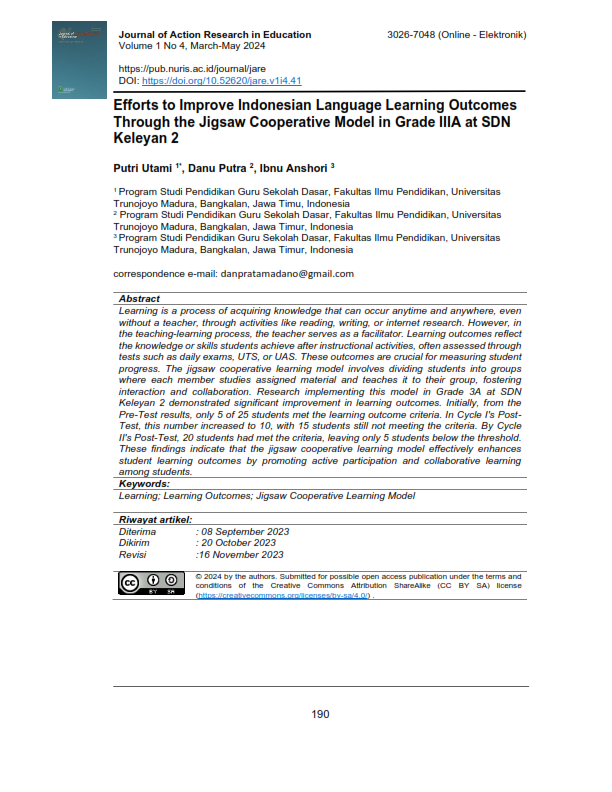Efforts to Improve Indonesian Language Learning Outcomes Through the Jigsaw Cooperative Model in Grade IIIA at SDN Keleyan 2
DOI:
https://doi.org/10.52620/jare.v1i4.41Keywords:
Learning, Learning Outcomes, Jigsaw Cooperative Learning ModelAbstract
Learning is a process of acquiring knowledge that can occur anytime and anywhere, even without a teacher, through activities like reading, writing, or internet research. However, in the teaching-learning process, the teacher serves as a facilitator. Learning outcomes reflect the knowledge or skills students achieve after instructional activities, often assessed through tests such as daily exams, UTS, or UAS. These outcomes are crucial for measuring student progress. The jigsaw cooperative learning model involves dividing students into groups where each member studies assigned material and teaches it to their group, fostering interaction and collaboration. Research implementing this model in Grade 3A at SDN Keleyan 2 demonstrated significant improvement in learning outcomes. Initially, from the Pre-Test results, only 5 of 25 students met the learning outcome criteria. In Cycle I's Post-Test, this number increased to 10, with 15 students still not meeting the criteria. By Cycle II's Post-Test, 20 students had met the criteria, leaving only 5 students below the threshold. These findings indicate that the jigsaw cooperative learning model effectively enhances student learning outcomes by promoting active participation and collaborative learning among students.




